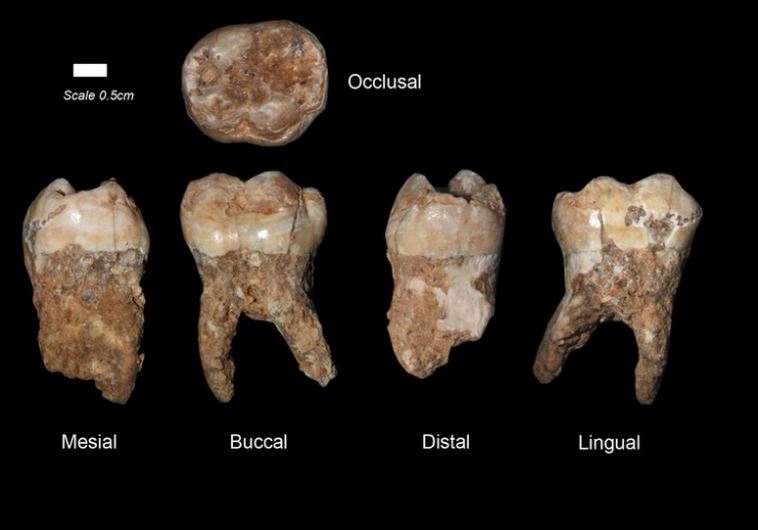Archaeologists discover 400,000 year-old case of manmade pollution near Tel Aviv
'This is one of the first, if not the first, cases of manmade pollution on the planet' said Professor Barkai, lead researcher at Tel Aviv University.
 Researchers at Tel Aviv University discover 400,000 year old teeth(photo credit: TEL AVIV UNIVERSITY)Updated:
Researchers at Tel Aviv University discover 400,000 year old teeth(photo credit: TEL AVIV UNIVERSITY)Updated: